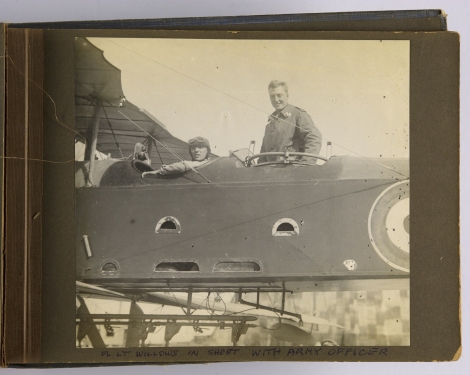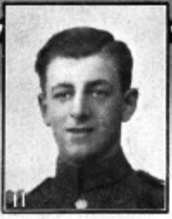Diversity in the RAF of the First World War - the Jewish contribution

The size of the Jewish community in 1914 was approximately 300,000 in a total British population of over 41 million. Antisemitism in 1914 was a common occurrence across Europe, including in the UK. Newspapers and officials would frequently generalise and be disparaging about Jewish groups and individuals.
The Jewish community was a mixture of communities; some were religious while others were not. Jewish communities lived in towns and cities across the UK with some integrated into the non-Jewish world around them and some living in immigrant communities with little interaction with non-Jews. When war was declared in 1914 the British Board of Deputies of British Jews and other leading bodies that represented the Jewish community immediately supported the UK government and supported the war.
Between 40,000 and 55,000 or more Jews served in the British forces during the war, the exact figure is unknown as many are known to have joined up without stating their religion to avoid any prejudice. There were no formal restriction on Jews in the British forces and they could join any service and receive a commission to become an officer.
According to the British Jewry Book of Honour (a community record of the Anglo-Jewish contribution to the First World War) approximately 260 Jewish men served in the RAF as officers and there were approximately 2,073 Jewish men who were listed as NCO’s and other. Many received medals and honours for their contribution. They served all over the world with the RAF including in the Middle East.
It was observed that a number of Jewish tailors were recruited specifically to work on the fabric used to cover the aircraft and make it safe and secure.
Three of those that served
Frederick Michael Green "Fred"
Fred Green was born on the 11 March 1882 in Paddington, London. After leaving school Fred trained to be an engineer and qualified as a Civil Engineer. Before the war he worked as an engineer in factories, which continued for a short time on the Home Front. As the war progressed Fred joined the services, eventually becoming a Captain and an aeronautical engineer for the RAF. He was given a commendation for his engineering work on the Home Front.
He died in Haringey, London in 1973.
David Claud Bauer D.F.C.
David Bauer was born 24 December 1889. He joined the Royal Flying Corps in 1916 and by 1918 he was a Captain in the RAF.
While serving he was awarded the Distinguished Flying Cross. He was awarded DFC on 3rd June 1918 for the following service; "This Officer has commanded No 18 Balloon Section located near the Lille Gate in Ypres throughout the battles of the Second Army in the autumn of 1917. His camp was continually under shell fire from guns of large calibre, and his balloon was hit many times, but nevertheless much important work was done by his section, He showed courage and set a good example to all, and it was largely due to him that work was carried on at all under such conditions."
He died at a CCS near Bapaume, from pneumonia, and was buried at Delsaux Farm Military Cemetery, France. His Colonel wrote; "Had he not died in hospital he would have headed the list of recommendations for further decorations."

Henry Bader
Henry Bader was born on 26 January 1900 in London. He joined the army at the age of 15 years stating that he was 19. According to his family he wanted to ‘do his bit’ and to avoid becoming an apprentice in his father’s (Jacob Bader) chain of ladies shops.
He survived the war but to still avoid returning home he joined the French Fire Brigade in Calais, France. In 1921, there was a very rainy summer and fires were few and far between so he was made redundant.
Still reluctant to return to become a ladies hairdresser he joined the Royal Air Force in 1921. He was trained as a bomb-aimer and navigator and was sent to Baghdad where the UK had a base. He flew every day from Baghdad to Basra to deliver forces' mail. He sat in the rear seat of an open two-seater bi-plane. The pilot for his eighteen-month service was T.E. Lawrence, known as Lawrence of Arabia. When he returned to the UK Henry married and had a son who he named Lawrence in honour of his famous friend.
He died in 1969 in Enfield, London after a successful career as a hairdresser.
To find out more about the Jewish contribution and the First World War visit




